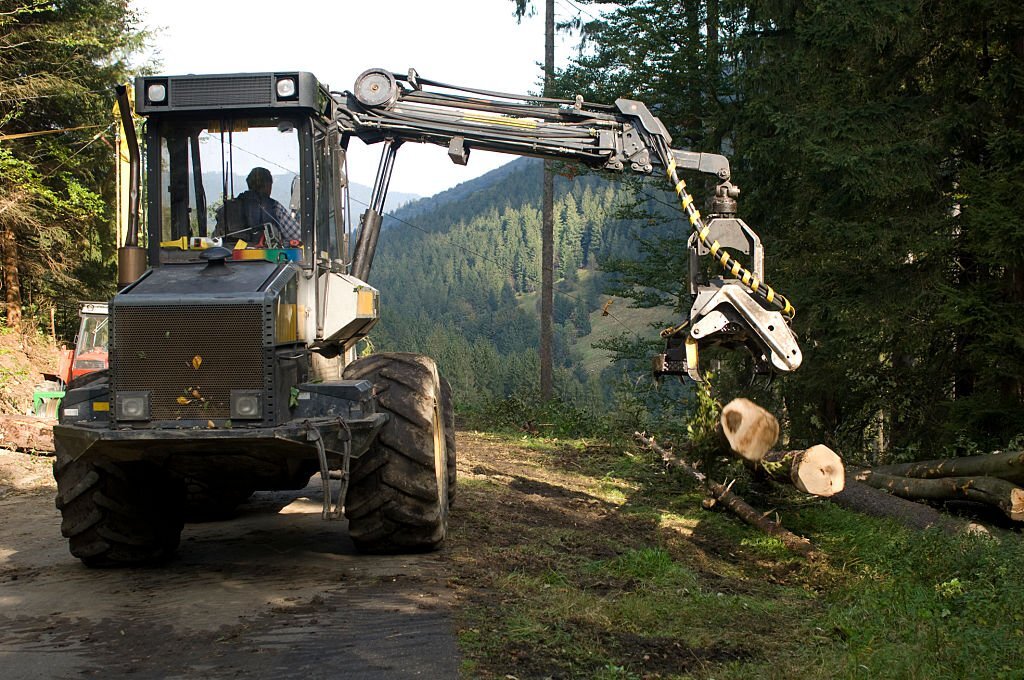
Introduction
The safe and efficient operation of logging equipment is crucial for the success of the forestry industry. Logging machinery, ranging from chainsaws to heavy equipment like feller-bunchers and skidders, demands specialized skills and knowledge. To ensure the well-being of operators, protect the environment, and maximize productivity, specific training and certifications are required for those operating logging equipment. This article delves into the training requirements, certification programs, and best practices essential for operators to maintain a safe and efficient workplace in the logging industry.
Basic Logging Equipment Training
1.1 Chainsaw Safety Training
Chainsaw operation is fundamental in various logging tasks, such as felling, limbing, and bucking. Chainsaw safety training covers topics like proper handling, chain maintenance, personal protective equipment (PPE) use, and safe cutting techniques.
1.2 Benefits
- Reduced Accidents: Chainsaw safety training mitigates the risk of accidents and injuries during logging operations.
- Improved Efficiency: Proper handling techniques enable operators to work more efficiently, minimizing delays and downtime.
Heavy Equipment Operator Training
2.1 Feller-Buncher and Skidder Operation
Operators of heavy logging equipment like feller-bunchers and skidders must undergo comprehensive training. This includes understanding machine controls, maneuvering in challenging terrains, and adherence to safety protocols.
2.2 Benefits
- Operator Proficiency: Proper training ensures operators are proficient in handling complex machinery, enhancing operational efficiency.
- Equipment Longevity: Well-trained operators can operate heavy equipment more responsibly, leading to reduced wear and tear and increased equipment lifespan.
Occupational Safety and Health Training
3.1 Safety Regulations and Protocols
Logging equipment operators must receive training on occupational safety and health standards relevant to the logging industry. This covers topics like hazard identification, emergency response, and workplace safety protocols.
3.2 Benefits
- Safer Work Environment: Equipped with safety knowledge, operators can minimize risks and prevent accidents in the workplace.
- Compliance with Regulations: Training ensures logging companies are compliant with safety regulations, avoiding legal issues and penalties.
Forest Management and Environmental Training
4.1 Sustainable Forestry Practices
Logging equipment operators should understand the principles of sustainable forest management, including selective harvesting, reforestation, and ecosystem preservation.
4.2 Benefits
- Responsible Logging: Environmental training empowers operators to engage in responsible logging practices, protecting natural resources and habitats.
- Stakeholder Collaboration: Operators well-versed in sustainable practices can foster positive relationships with environmental organizations and local communities.
Certifications for Logging Equipment Operators
5.1 Professional Logging Manager (PLM) Certification
The Professional Logging Manager (PLM) certification program is designed for individuals responsible for managing logging operations. This program covers various aspects of logging management, including safety, planning, environmental considerations, and business management.
5.2 Benefits
- Comprehensive Skillset: PLM-certified operators possess a broad range of skills essential for effective logging operations and management.
- Industry Recognition: PLM certification adds credibility to operators’ qualifications, gaining recognition within the forestry industry.
Best Practices for Logging Equipment Operators
6.1 Regular Equipment Inspection
Operators should conduct pre-operation inspections to ensure logging equipment is in optimal condition. This includes checking fluid levels, tire conditions, and the functionality of safety features.
6.2 Benefits
- Early Issue Detection: Regular inspections help operators identify potential problems before they escalate, reducing the risk of equipment breakdowns during operations.
- Operator Safety: Properly maintained equipment ensures operators work in a safe and controlled environment.
6.3 Adherence to Safety Protocols
Operators should strictly adhere to safety protocols, such as using personal protective equipment (PPE), implementing traffic control measures, and following communication protocols.
6.4 Benefits
- Accident Prevention: Safety protocols reduce the likelihood of accidents and injuries during logging operations.
- Organized Workflow: Clear communication and adherence to protocols contribute to a well-organized and efficient workflow.
Conclusion
The role of training and certifications in the logging industry is essential for the safety and efficiency of logging equipment operators. From basic chainsaw safety to comprehensive heavy equipment operation, proper training ensures operators are equipped with the necessary skills and knowledge for responsible forest management. Additionally, certifications like the Professional Logging Manager (PLM) designation provide operators with industry recognition and comprehensive management skills. Adherence to safety protocols, regular equipment inspections, and a commitment to sustainable forestry practices further enhance workplace safety and environmental stewardship. By investing in training and certifications, the logging industry can foster a highly skilled and safety-conscious workforce, paving the way for sustainable and efficient practices that protect both workers and the environment.

